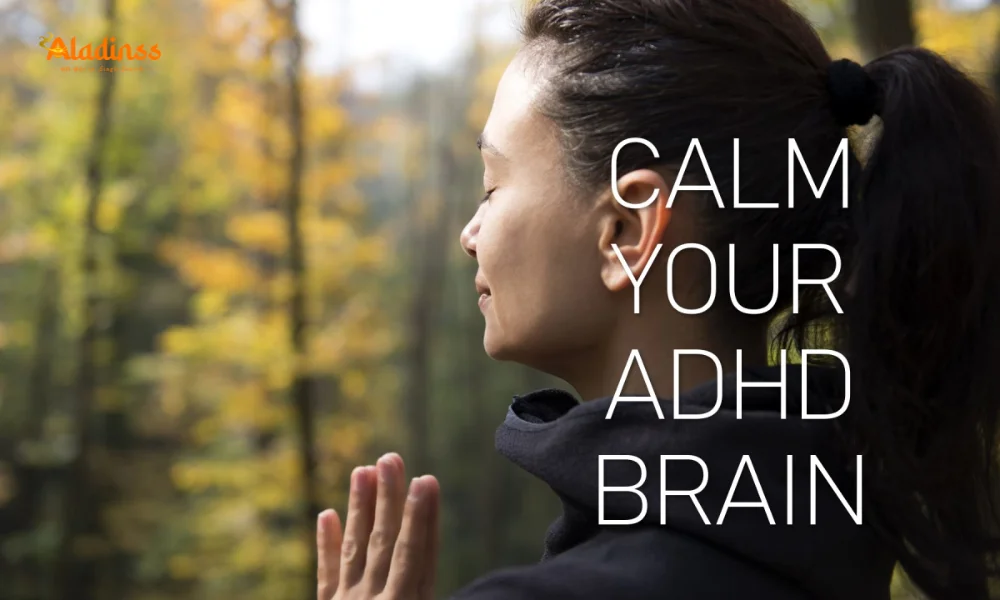Boost Focus and Calm Your Mind: Mindfulness Strategies to Transform ADHD, Reduce Stress and Impulsivity

Mastering ADHD: Mindfulness Techniques to Manage Stress and Impulsivity
Attention Deficit Hyperactivity Disorder (ADHD) is more than just difficulty focusing—it’s a condition that often involves emotional dysregulation, heightened stress, and impulsive behaviors. These challenges can disrupt daily life at school, work, or home, making emotional intelligence (EI) a vital tool for those affected. Mindfulness techniques offer a powerful way to manage ADHD symptoms, helping individuals channel their energy constructively, reduce stress, and build emotional resilience, according to leading experts in the field.
By fostering self-awareness and creating structured habits, mindfulness practices can transform how individuals with ADHD navigate their emotions and interactions. From children struggling with impulsivity to adults facing work-life imbalances, expert-backed strategies like meditation, structured routines, and Ayurvedic principles provide a roadmap to calmer, more controlled lives.

Understanding the Emotional Side of ADHD
While ADHD is commonly associated with inattention and hyperactivity, its emotional impact is equally significant. Individuals with ADHD often experience intense emotional responses, difficulty regulating impulses, and heightened stress, which can lead to challenges in personal and professional settings. Emotional intelligence—the ability to recognize, understand, and manage one’s emotions—plays a crucial role in addressing these issues, enabling individuals to respond thoughtfully rather than react impulsively.
Dr. Zankhana M Buch, Chief Medical Officer at Apollo AyurVAID, explains that ADHD manifests differently across age groups. In children, it often stems from high energy levels amplified by poor diet or excessive sensory stimulation. “For adults, ADHD is frequently triggered by chronic multitasking, work-life imbalances, and inadequate stress management,” she notes. These factors contribute to emotional dysregulation, making mindfulness a critical tool for restoring balance.
Ayurvedic Insights for Managing ADHD
Ayurveda offers a holistic approach to managing ADHD by addressing diet, lifestyle, and thought patterns. Dr. Buch highlights that ADHD aligns with a Rajasic personality—characterized by restlessness and a constant need for stimulation. “To counter this, Ayurveda emphasizes harmonizing Ahara (diet), Achara (lifestyle), and Vichara (thoughts),” she says. A Sattvic diet, rich in light and nourishing foods, combined with regular routines and calming evening practices, helps stabilize the Vata energy that often exacerbates ADHD symptoms.
Practical Ayurvedic strategies include:
- Adopting a balanced diet with whole grains, fresh vegetables, and minimal processed foods.
- Establishing consistent sleep schedules to promote mental clarity.
- Incorporating gentle activities like yoga or evening walks to soothe the nervous system.
- Practicing mindfulness to cultivate calm and focused thought patterns.
By aligning lifestyle choices with these principles, individuals can reduce hyperactivity and improve emotional regulation, creating a foundation for long-term well-being.
Mindfulness for Children with ADHD
For children with ADHD, impulsivity can make it challenging to pause before acting. Dr. Sonam Kothari, a pediatric neurologist and co-founder of Butterfly Learnings, stresses the importance of fostering emotional awareness. “When children learn to identify their emotions, they can pause before reacting, allowing for more thoughtful responses,” she explains. This skill is critical for building self-control and reducing conflicts in social or academic settings.
Dr. Kothari recommends simple mindfulness exercises tailored for children, such as:
- Breathing exercises: Teaching children to take slow, deep breaths to calm their minds.
- Art-based expression: Using drawing or coloring to process emotions creatively.
- Structured routines: Providing predictable schedules to reduce anxiety and overwhelm.
Caregivers and educators play a pivotal role by modeling emotional intelligence and offering consistent support. By creating a nurturing environment, children with ADHD can develop stronger relationships and better manage stress, laying the groundwork for emotional resilience.
Practical Mindfulness Techniques for All Ages
For older children and adults, structured mindfulness techniques can significantly improve emotional regulation. Dr. Ajit Singh Baghela, a consultant in pediatric neurology at Artemis Hospitals, advocates for the STOP method: Stop, Take a breath, Observe your feelings, and Proceed thoughtfully. “This simple technique creates a pause between impulse and action, empowering individuals to respond with clarity,” he says.
Other effective strategies include:
- Deep breathing: Practicing slow, controlled breaths to reduce stress and refocus.
- Meditation: Engaging in short, guided sessions to enhance self-awareness.
- Physical activity: Incorporating stretching, walking, or yoga to release pent-up energy.
- Reflective pauses: Taking a moment to assess emotions before reacting to situations.
Dr. Baghela also highlights the benefits of evidence-based therapies like Cognitive Behavioral Therapy (CBT) and Dialectical Behavior Therapy (DBT). These approaches help individuals reframe negative thought patterns, improve interpersonal skills, and develop coping mechanisms for stress and impulsivity.
The Role of Structured Routines
Structured routines are a cornerstone of ADHD management, providing predictability and reducing overwhelm. “Knowing what to expect helps individuals with ADHD feel more in control,” Dr. Baghela explains. Routines can include designated times for work, exercise, meals, and relaxation, creating a sense of stability that mitigates stress and impulsive behaviors.
For example, adults can benefit from time-blocking their workday to prioritize tasks, while children thrive with consistent schedules for homework, play, and bedtime. These routines, when combined with mindfulness practices, create a powerful framework for managing ADHD symptoms effectively.
Emotional Intelligence as a Lifelong Skill
Emotional intelligence is not just a tool for managing ADHD—it’s a lifelong skill that enhances relationships, decision-making, and mental well-being. By cultivating EI, individuals with ADHD can better navigate social interactions, reduce conflict, and build resilience against stress. This is particularly important in high-pressure environments like workplaces or schools, where emotional dysregulation can lead to misunderstandings or setbacks.
Dr. Kothari emphasizes that fostering EI requires consistent practice and support from family, educators, and mental health professionals. “When children and adults see empathy modeled in their environments, they’re more likely to internalize these skills,” she notes. Over time, these efforts translate into improved self-esteem and stronger interpersonal connections.
Integrating Physical and Mental Strategies
Combining physical and mental strategies can amplify the benefits of mindfulness for ADHD. Physical activities like yoga, stretching, or even a brisk walk can help release excess energy, making it easier to focus on mental exercises like meditation. Dr. Baghela recommends incorporating movement into daily routines to create a holistic approach to symptom management.
For instance, a morning routine that includes 10 minutes of yoga followed by a brief meditation session can set a positive tone for the day. Similarly, children can benefit from short movement breaks during study sessions to maintain focus and reduce restlessness.
Challenges and Solutions in ADHD Management
Managing ADHD is not without challenges. The variability of symptoms across individuals means that strategies must be tailored to specific needs. For some, dietary changes may have a significant impact, while others may respond better to behavioral therapies or mindfulness practices. Additionally, societal misconceptions about ADHD can create stigma, making it harder for individuals to seek help.
To overcome these challenges, experts recommend:
- Seeking professional guidance from neurologists or therapists specializing in ADHD.
- Educating family and friends to create a supportive environment.
- Experimenting with different mindfulness techniques to find what works best.
- Advocating for accommodations in schools or workplaces to reduce stress.
By addressing these challenges proactively, individuals with ADHD can build a sustainable framework for managing their symptoms and thriving in their daily lives.
The Path Forward: Embracing Mindfulness
Managing ADHD with mindfulness is not about suppressing energy but redirecting it with intention. Whether through Ayurvedic lifestyle changes, structured routines, or evidence-based therapies, these strategies empower individuals to take control of their emotions and actions. By fostering emotional intelligence and mindfulness, those with ADHD can navigate life’s challenges with greater confidence and calm.
For the latest insights on ADHD management and mental health strategies, stay connected with trusted resources and expert advice. Embracing mindfulness is a journey—one that holds the promise of a more balanced and fulfilling life for those with ADHD.
Comment / Reply From
No comments yet. Be the first to comment!






